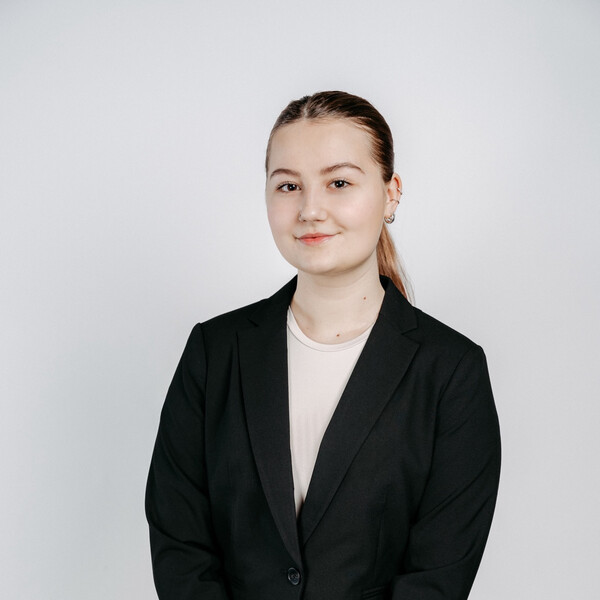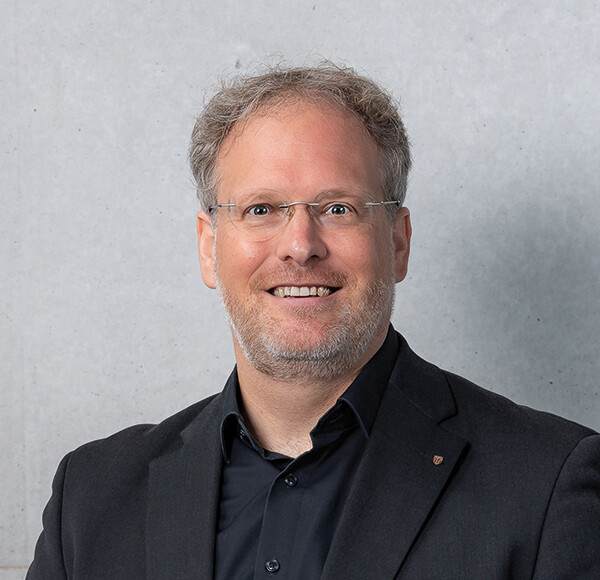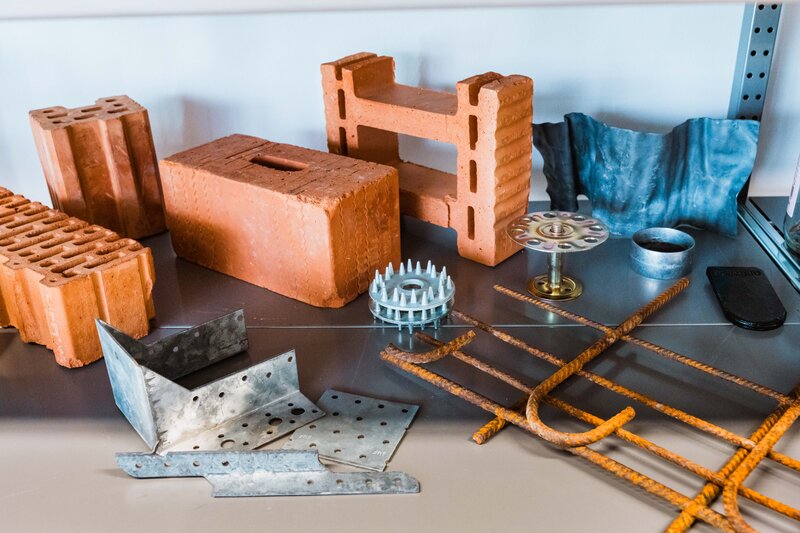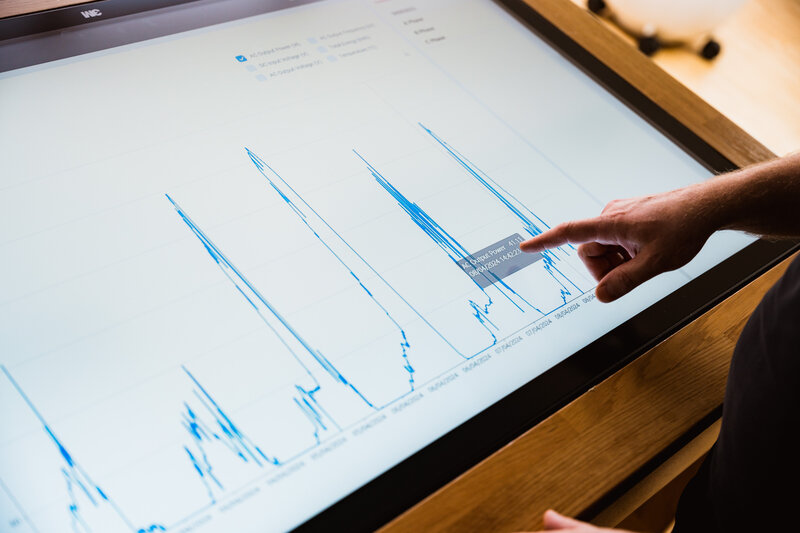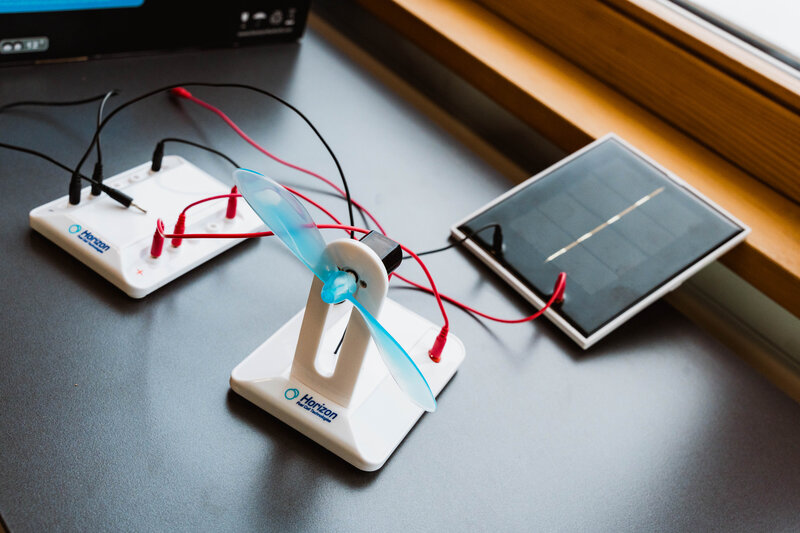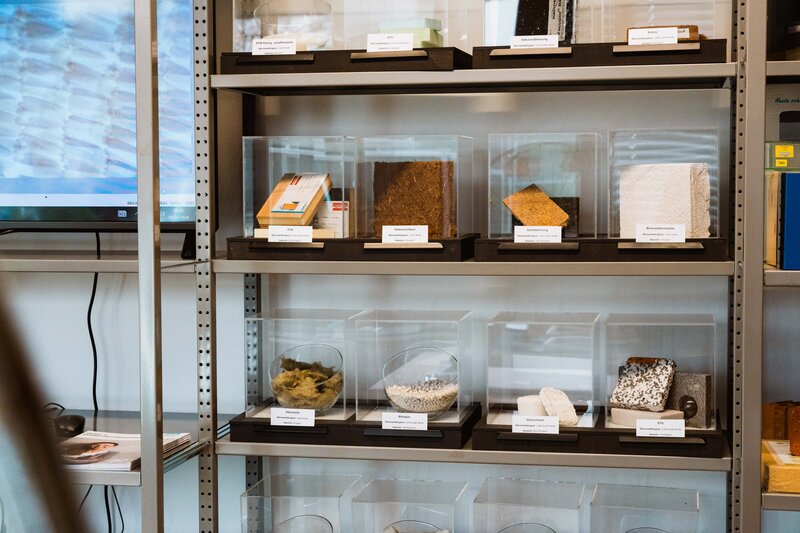Are you ready to help shape the future of real estate on an international level? Our English-language degree program combines sound theory with practical projects and international experience. This opens up a wide range of opportunities for you to develop innovative and sustainable real estate solutions worldwide.

Facility & Real Estate Management
Bachelor's degree program
Overview
-
Qualification Level:
Stufe 1, Bachelor -
Price:
Euro 363,36* (excl. Student Union-fees) each semester -
Academic Degree:
Bachelor of Arts in Business (BA) -
Academic Program:
Full-time -
Language:
100 % English -
Remote Options:
E-Learning max. 30 % online -
Exchange Semester:
Organized stay abroad, 3rd semester** -
Admission Requirements:
General admission requirements -
Study Places per Year:
30
Study program accredited by the Agency for Quality Assurance and Accreditation Austria

Program Description
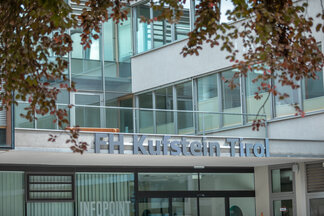


Our English-language bachelor's degree program in Facility & Real Estate Management prepares you for the global challenges of the international real estate industry.
You will acquire in-depth knowledge of sustainable building management, innovative real estate development, and digital technologies that are in demand worldwide. A semester abroad at a renowned partner university will strengthen your intercultural skills and expand your international network. Through practice-oriented projects, you will develop the ability to communicate in global teams and take on leadership roles in an international context. With topics such as sustainability, energy efficiency, and digital transformation, you will be well prepared for a career in the global real estate industry.
Study Focus
-
25 %
Technological basics of facility management & real estate management
-
18 %
Expertise in business & management
-
23 %
International expertise
-
7 %
Social skills
-
27 %
Practical knowledge transfer & Bachelor's thesis
What You Will Learn
-
Planning development & utilization concepts
-
Application of legal provisions
-
Creation of solutions for various office concepts and space utilization
-
Independent implementation of energy & environmental consulting in the building sector
-
Preparation of real estate valuations
-
Competent marketing and sale of real estate
-
Carrying out activities in property management
Popular Occupational Fields
- Real estate project development & property development
- Real estate management, building operation & facility management
- Sustainability management
- Real estate valuation
- Marketing, utilization & rental
- New build, conversion & renovation planning
Career Opportunities
-
EUR 42,200 average salary
for facility managers in Germany and Austria in 2024 (according to Kununu)
-
EUR 39,600 average salary
for property managers in Germany and Austria in 2024 (according to Kununu)
-
+ 6.2 % growth
in the global facility management market in 2023 (according to PWC, RealFM, Builtworld)
-
Significant business success
through effective facility management (according to PWC, RealFM, Builtworld)
The path to the Bachelor's Degree
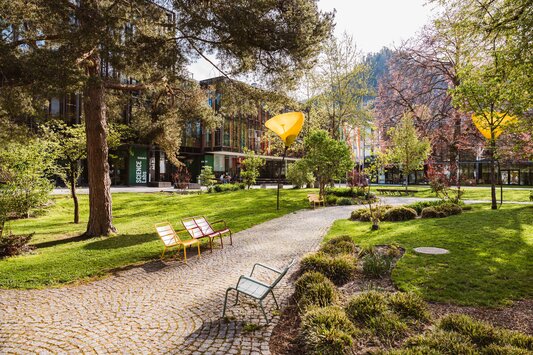
Students gain foundational knowledge in real estate and facility management, construction technology, and business topics. The program includes specialization abroad, management skills, real estate development, practical projects, an internship, and a bachelor’s thesis with both applied and research-oriented approaches.
Special features:
-
Integrated semester abroad & experienced degree program team
-
Regular fireside chats and practical projects with corporate contacts
-
Personal support from lecturers and the degree program team
Recognition of Prior Learning
Students have the option to receive credit for skills and competencies they have already acquired before the start of each semester.
To apply for credit, they must submit a request directly to the Director of Studies.
Director of Studies
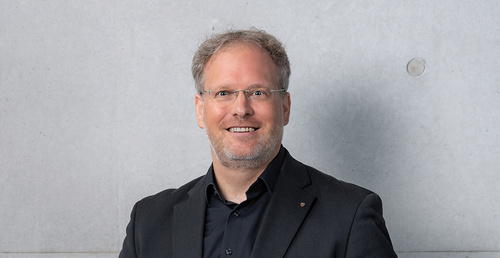
Asc. Prof. (FH) Dipl.-Ing. Christian Huber
Director of Studies Bachelor & Master Energy & Sustainability Management, Facility & Real Estate Management | Institute for Sustain & Estate
Curriculum
The language modules integrated into the degree program curriculum are designed according to the methodological principles of a communicative, action-oriented approach.
The competence levels of the modules are based on the Common European Framework of Reference for Languages (CEFR), and a central objective is that students increase their communication skills by at least one level.
In addition, there is a clear focus on acquiring academic and business-oriented skills in the target language.
• A1-A2 Basic communication skills
• B1-B2 Advanced use of the language and communication skills
• B2-C1 Independent language use to expert communication skills
• C1-C2 Expert language skills to fluent, competent communication skills
The language modules integrated into the degree program curriculum are designed according to the methodological principles of a communicative, action-oriented approach.
The competence levels of the modules are based on the Common European Framework of Reference for Languages (CEFR), and a central objective is that students increase their communication skills by at least one level.
In addition, there is a clear focus on acquiring academic and business-oriented skills in the target language.
• A1-A2 Basic communication skills
• B1-B2 Advanced use of the language and communication skills
• B2-C1 Independent language use to expert communication skills
• C1-C2 Expert language skills to fluent, competent communication skills
A generally valid description of the teaching content for the semester abroad cannot and should not be defined due to the large number of partner universities and the choices they offer, in order to guarantee freedom for students. The learning contents are based on the fundamentals and in-depth knowledge of the individual disciplines in the area of social competences.
As an example, this module has the following teaching contents:
• Basic components of communicative processes, message and meaning as well as content and relationship aspects of human communication
• Language, gestures, facial expressions, posture
• Possibilities of communication for assessment and motivation
• Communication in a team
• Communication problems and conflict solutions
• Goals and target group as well as structure, content and form of a presentation
• Selection and application of different presentation techniques and media
• Challenges of dislocated presentations
• Goals and target group as well as content and form of 3D visualizations
• Selection and application of tools for the creation of 3D visualizations
• Objectives and target group as well as structure, content and form of short videos
• Selection and application of simple techniques and tools for video creation
A generally valid description of the teaching content for the semester abroad cannot and should not be defined due to the large number of partner universities and the choices they offer, in order to guarantee freedom for students. The learning contents are based on the fundamentals and in-depth knowledge of the individual disciplines in the field of economics.
As an example, this module has the following teaching contents:
Core Topics:
• Economic thinking and marginal analysis
• Efficient allocation of scarce resources
• Market model and market equilibrium
• Macroeconomic variables (GDP, inflation and unemployment) and the interrelationships
Selected economics topics:
• Elasticity and welfare
• Cost functions and optimal firm production
• Price setting and market forms
• Short-term economic fluctuations: Business cycle
• Money, the ECB and inflation
• Long-term economic growth
• International relations and trade
A generally valid description of the teaching content for the semester abroad cannot and should not be defined due to the large number of partner universities and the choices they offer, in order to guarantee freedom for students. The learning contents are based on the fundamentals and in-depth knowledge of the individual disciplines in the field of business administration.
As an example, this module has the following teaching contents:
• Fundamentals of a company with a focus on digital business models
• Components of a business plan and creation of one’ s own business plan
• Business model analysis
• Fundamentals of marketing business models
Due to the large number of partner universities and the choice of academic and em-pirical methods they offer, a generally valid description of the course content for the semester abroad cannot and should not be defined in order to guarantee students freedom of choice. The content of the courses is oriented towards the fundamentals and in-depth knowledge of the individual disciplines in the field of academic and empirical methods.
As an example, this module has the following teaching contents:
• Qualitative and Quantitative Scientific Methods
o Questionnaire
o Interview
o Qualitative & quantitative content analysis
o Field & laboratory study (focus on experiment, A/B test & simulation)
• Tools and Examples
o Data collection
o Data analysis
o Visualization of the results
• Description and critical reflection of results
2x blocked compact weeks in small groups with international students:
• Introduction, consolidation, background and examples in the complex of topics of the project within the framework of a conference or introductory event.
• Research and analysis of framework conditions and possibilities
• Development and visualization of ideas and concepts
• Presentation of the results to stakeholders and/or technical experts
• Principles of academic and scientific work
o Science and scientific language
o Literature research
o Citation and source work
o Avoidance of plagiarism
• Principles of descriptive and explorative statistics
o statistical characteristics and variables
o univariate and multivariate descriptive and explorative statistics
o index numbers
o correlation and regression analyses
o concentration measurement
o time series analysis
The students have to carry out a project independently in small groups to the extent of 4 ECTS = 100h. The basis for this is a given objective. Planning, coordination, budgeting, control, communication and reporting as well as finding solutions are in the hands of the students. The role of the course director focuses on coaching the students.
In addition to the project, the basic principles of project management and application of supporting tools are part of this module:
- Project planning (project organization, resource planning with time planning as well as cost, financial and budget planning).
- Project management (time management, cost control and accounting, team leadership, quality management for projects)
The students have to carry out a project independently in small groups to the extent of 4 ECTS = 100h. The basis for this is a predefined objective. Planning, coordination, budgeting, control, communication and reporting as well as finding solutions are in the hands of the students. The role of the course director focuses on coaching the students.
In addition to the project, the following teaching and learning contents are part of this module:
• Examples and approaches to solutions from practice and research are presented in lectures by experts in the field and, where appropriate, excursions to companies and research institutions.
Full-time students must complete an internship of 19 ECTS = 475 hours. This time can be credited to students working in a specific subject. The following contents will be taught during the internship:
• Supplementing and deepening the knowledge acquired during the course of study through practical activities and questions of commercial law at an external company. The internship ensures that the students are able to find their way around when they start their professional life after their studies and gain confidence in the implementation of their acquired knowledge through the experience they have already gained.
In addition to the internship, the following teaching and learning contents are part of this module:
• Reflection on one’s own strengths
• Possibilities of self-marketing
• Implementation strategies for a personal work-life balance
• Deepening the knowledge of academic work in relation to the independent Bachelor thesis
• Visualization of academic results such as posters, video, infographics, etc.
• Regular meetings to discuss the current status and progress of the Bachelor thesis with accompanying academic supervision
• Information on the Commission Bachelor examination
• Basic knowledge and overview of common building materials for construction and finishing
• Assessment and selection of building materials according to technical and economic characteristics
• Basic knowledge of structural mechanics
• Building physics (heat, sound and humidity)
• Construction defects and structural damage with regard to cause and avoidance
• History of Facility Management in different countries
• Definitions and meanings of Facility Management in an international context as well as similarities and differences to other disciplines
• Models, processes and tasks in facility management
• Terms like service level agreement, key performance indicator, facility management agreement, service
• Normative framework in facility management
• Definition of sustainability and presentation of sustainability in facility management
• Primary, secondary and tertiary structures
• Solid, lightweight and system construction methods in shell and finish construction
• Communication of the constructive interrelations and detailed solutions usually found in building construction (new construction and renovation)
• Requirements (rules and standards) and contents of construction drawings (site plan, ground plans, sections, views and details)
• Introduction to the functions of a CAD program and application
• Basic programming knowledge for data preparation
• Analysis and presentation of information from data sets
• Public building law (provisions from regional and building regulations)
• Fundamentals and application of feasibility studies
o Market, location and competition analyses
o Use concepts
o Profitability analyses
o Risk analysis
• Planning and construction processes
• Building typologies and room functions
• Design fundamentals
• Creation of 2D and 3D sketches as basis for communication
• Special features, instruments and methods of real estate marketing
• Structure and contents of service level agreements
• Basic structure and contents of Facility Services
• Structure and procedure of a CAFM implementation
• Measurement procedures and certifications in quality management
• Energy management with a focus on energy management systems and energy audits
• Maintenance management and maintenance strategies
• Relocation management and space management with a focus on office space and workplace concepts, space planning, occupancy analyses, ergonomics, accessibility and change management
• Basic concepts and calculations in cleaning management
• Meteorological fundamentals, comfort
• Heating and cooling loads
• Heating systems: Description and characteristics of the most important components, e.g. heat exchangers, boilers, burners, heat pumps, solar systems, automation equipment
• Ventilation technology: Description and characteristics of the most important components, e.g. fans, air heaters and air coolers, air filters, air humidifiers and dehumidifiers, heat recovery, fire protection, automation equipment.
• Refrigeration: Description and characteristics of the most important components, e.g. refrigerating machines, recooling plants, cooling ceilings, circulating air cooling units
• Electrical engineering: Description and characteristics of the most important components, e.g. distribution, fuses, equipment
• Sanitary Technology: Hot water preparation, water supply, sewage disposal, rain-water
• Elevators, escalators, lifting platforms, automatic doors, garage technology, fire alarm systems, safety lighting
• Players in the real estate industry
• Documents and information about the property
• Factors influencing the property
• Terminology and key figures in the real estate industry
• Fundamentals of legal relationships in the real estate industry (rights and standards)
• Fundamentals of aspects specific to space and building regulations
Overview and context analysis of the most important subareas in business administration
• Subject and fundamentals of business administration:
o Operational functional areas
o Business decision theory
o Fundamentals of management and ethics
o Fundamentals of Human Resources and organization
o Marketing fundamentals
• Fundamentals of business management:
o Constitutive company decisions such as legal forms, location decisions, types of mergers and acquisitions and choice of business segment
o Functional company decisions: Materials management, production management, marketing
• Fundamentals of business value creation processes and functions (value creation architecture and structure)
• Fundamentals of market-, process- and strategy-oriented management
• Microeconomics and the behavior of managers and companies
• Price and product policy of companies
• Elementary principles of game theory
• Company organization
• Market forms & market entry
• Decisions under uncertainty
• Behavioral economics
• Economy of digitization
• External accounting:
o Structure of the accounting system
o Fundamentals of operational accounting: Tasks, sub-areas and basic concepts
o Commercial accounting system: From inventory to opening balance sheet
o Double-entry accounting system: Posting business cases to inventory and profit and loss accounts
o Organization of bookkeeping (chart of accounts, sales tax, etc.)
o Principle of period purity and accruals and deferrals
• Internal accounting:
o Objectives and basic concepts of cost and revenue accounting
o Fundamentals of cost and revenue accounting: Tasks, components and subareas
o Structure of cost accounting (cost elements, cost centers, cost objects)
o Contribution margin accounting
• Fundamentals of property valuation
• Procedure and influencing factors of standardized valuation methods (comparative value method, material value method, capitalized earnings value method, DCF method, residual value method)
• Introduction to valuation of rights and encumbrances
• Fundamentals of financial mathematics
• Static and dynamic investment calculations
• Loan financing and equity financing
• Real estate lending process
• Real estate investment/real estate investment
• Real estate market and capital market
• Fundamentals of building management
• Management and administration of WGG properties, WE properties, apartment buildings and commercial properties
• Real estate asset management
• Corporate real estate management
• Public real estate management
• Key management figures
• Explanations of terms from the most important areas of law
• Distinction between public law and private law
• Applied basic knowledge of civil law
• Real estate-specific legal areas (e.g. acquisition of property, MRG, WEG)
• Contract law (including FM contracts, contracts for work and services, maintenance and repair contracts)
• Fundamentals of public procurement law
The language modules integrated into the degree program curriculum are designed according to the methodological principles of a communicative, action-oriented approach.
The competence levels of the modules are based on the Common European Framework of Reference for Languages (CEFR), and a central objective is that students increase their communication skills by at least one level.
In addition, there is a clear focus on acquiring academic and business-oriented skills in the target language.
• A1-A2 Basic communication skills
• B1-B2 Advanced use of the language and communication skills
• B2-C1 Independent language use to expert communication skills
• C1-C2 Expert language skills to fluent, competent communication skills
• Principles of academic and scientific work
o Science and scientific language
o Literature research
o Citation and source work
o Avoidance of plagiarism
• Principles of descriptive and explorative statistics
o statistical characteristics and variables
o univariate and multivariate descriptive and explorative statistics
o index numbers
o correlation and regression analyses
o concentration measurement
o time series analysis
• Basic knowledge and overview of common building materials for construction and finishing
• Assessment and selection of building materials according to technical and economic characteristics
• Basic knowledge of structural mechanics
• Building physics (heat, sound and humidity)
• Construction defects and structural damage with regard to cause and avoidance
• History of Facility Management in different countries
• Definitions and meanings of Facility Management in an international context as well as similarities and differences to other disciplines
• Models, processes and tasks in facility management
• Terms like service level agreement, key performance indicator, facility management agreement, service
• Normative framework in facility management
• Definition of sustainability and presentation of sustainability in facility management
• Players in the real estate industry
• Documents and information about the property
• Factors influencing the property
• Terminology and key figures in the real estate industry
• Fundamentals of legal relationships in the real estate industry (rights and standards)
• Fundamentals of aspects specific to space and building regulations
The language modules integrated into the degree program curriculum are designed according to the methodological principles of a communicative, action-oriented approach.
The competence levels of the modules are based on the Common European Framework of Reference for Languages (CEFR), and a central objective is that students increase their communication skills by at least one level.
In addition, there is a clear focus on acquiring academic and business-oriented skills in the target language.
• A1-A2 Basic communication skills
• B1-B2 Advanced use of the language and communication skills
• B2-C1 Independent language use to expert communication skills
• C1-C2 Expert language skills to fluent, competent communication skills
• Primary, secondary and tertiary structures
• Solid, lightweight and system construction methods in shell and finish construction
• Communication of the constructive interrelations and detailed solutions usually found in building construction (new construction and renovation)
• Requirements (rules and standards) and contents of construction drawings (site plan, ground plans, sections, views and details)
• Introduction to the functions of a CAD program and application
• Basic programming knowledge for data preparation
• Analysis and presentation of information from data sets
Overview and context analysis of the most important subareas in business administration
• Subject and fundamentals of business administration:
o Operational functional areas
o Business decision theory
o Fundamentals of management and ethics
o Fundamentals of Human Resources and organization
o Marketing fundamentals
• Fundamentals of business management:
o Constitutive company decisions such as legal forms, location decisions, types of mergers and acquisitions and choice of business segment
o Functional company decisions: Materials management, production management, marketing
• Fundamentals of business value creation processes and functions (value creation architecture and structure)
• Fundamentals of market-, process- and strategy-oriented management
• Microeconomics and the behavior of managers and companies
• Price and product policy of companies
• Elementary principles of game theory
• Company organization
• Market forms & market entry
• Decisions under uncertainty
• Behavioral economics
• Economy of digitization
• External accounting:
o Structure of the accounting system
o Fundamentals of operational accounting: Tasks, sub-areas and basic concepts
o Commercial accounting system: From inventory to opening balance sheet
o Double-entry accounting system: Posting business cases to inventory and profit and loss accounts
o Organization of bookkeeping (chart of accounts, sales tax, etc.)
o Principle of period purity and accruals and deferrals
• Internal accounting:
o Objectives and basic concepts of cost and revenue accounting
o Fundamentals of cost and revenue accounting: Tasks, components and subareas
o Structure of cost accounting (cost elements, cost centers, cost objects)
o Contribution margin accounting
• Fundamentals of property valuation
• Procedure and influencing factors of standardized valuation methods (comparative value method, material value method, capitalized earnings value method, DCF method, residual value method)
• Introduction to valuation of rights and encumbrances
• Fundamentals of financial mathematics
• Static and dynamic investment calculations
• Loan financing and equity financing
• Real estate lending process
• Real estate investment/real estate investment
• Real estate market and capital market
A generally valid description of the teaching content for the semester abroad cannot and should not be defined due to the large number of partner universities and the choices they offer, in order to guarantee freedom for students. The learning contents are based on the fundamentals and in-depth knowledge of the individual disciplines in the area of social competences.
As an example, this module has the following teaching contents:
• Basic components of communicative processes, message and meaning as well as content and relationship aspects of human communication
• Language, gestures, facial expressions, posture
• Possibilities of communication for assessment and motivation
• Communication in a team
• Communication problems and conflict solutions
• Goals and target group as well as structure, content and form of a presentation
• Selection and application of different presentation techniques and media
• Challenges of dislocated presentations
• Goals and target group as well as content and form of 3D visualizations
• Selection and application of tools for the creation of 3D visualizations
• Objectives and target group as well as structure, content and form of short videos
• Selection and application of simple techniques and tools for video creation
A generally valid description of the teaching content for the semester abroad cannot and should not be defined due to the large number of partner universities and the choices they offer, in order to guarantee freedom for students. The learning contents are based on the fundamentals and in-depth knowledge of the individual disciplines in the field of economics.
As an example, this module has the following teaching contents:
Core Topics:
• Economic thinking and marginal analysis
• Efficient allocation of scarce resources
• Market model and market equilibrium
• Macroeconomic variables (GDP, inflation and unemployment) and the interrelationships
Selected economics topics:
• Elasticity and welfare
• Cost functions and optimal firm production
• Price setting and market forms
• Short-term economic fluctuations: Business cycle
• Money, the ECB and inflation
• Long-term economic growth
• International relations and trade
A generally valid description of the teaching content for the semester abroad cannot and should not be defined due to the large number of partner universities and the choices they offer, in order to guarantee freedom for students. The learning contents are based on the fundamentals and in-depth knowledge of the individual disciplines in the field of business administration.
As an example, this module has the following teaching contents:
• Fundamentals of a company with a focus on digital business models
• Components of a business plan and creation of one’ s own business plan
• Business model analysis
• Fundamentals of marketing business models
Due to the large number of partner universities and the choice of academic and em-pirical methods they offer, a generally valid description of the course content for the semester abroad cannot and should not be defined in order to guarantee students freedom of choice. The content of the courses is oriented towards the fundamentals and in-depth knowledge of the individual disciplines in the field of academic and empirical methods.
As an example, this module has the following teaching contents:
• Qualitative and Quantitative Scientific Methods
o Questionnaire
o Interview
o Qualitative & quantitative content analysis
o Field & laboratory study (focus on experiment, A/B test & simulation)
• Tools and Examples
o Data collection
o Data analysis
o Visualization of the results
• Description and critical reflection of results
The students have to carry out a project independently in small groups to the extent of 4 ECTS = 100h. The basis for this is a given objective. Planning, coordination, budgeting, control, communication and reporting as well as finding solutions are in the hands of the students. The role of the course director focuses on coaching the students.
In addition to the project, the basic principles of project management and application of supporting tools are part of this module:
- Project planning (project organization, resource planning with time planning as well as cost, financial and budget planning).
- Project management (time management, cost control and accounting, team leadership, quality management for projects)
• Public building law (provisions from regional and building regulations)
• Fundamentals and application of feasibility studies
o Market, location and competition analyses
o Use concepts
o Profitability analyses
o Risk analysis
• Planning and construction processes
• Building typologies and room functions
• Design fundamentals
• Creation of 2D and 3D sketches as basis for communication
• Special features, instruments and methods of real estate marketing
• Structure and contents of service level agreements
• Basic structure and contents of Facility Services
• Structure and procedure of a CAFM implementation
• Measurement procedures and certifications in quality management
• Energy management with a focus on energy management systems and energy audits
• Maintenance management and maintenance strategies
• Relocation management and space management with a focus on office space and workplace concepts, space planning, occupancy analyses, ergonomics, accessibility and change management
• Basic concepts and calculations in cleaning management
• Meteorological fundamentals, comfort
• Heating and cooling loads
• Heating systems: Description and characteristics of the most important components, e.g. heat exchangers, boilers, burners, heat pumps, solar systems, automation equipment
• Ventilation technology: Description and characteristics of the most important components, e.g. fans, air heaters and air coolers, air filters, air humidifiers and dehumidifiers, heat recovery, fire protection, automation equipment.
• Refrigeration: Description and characteristics of the most important components, e.g. refrigerating machines, recooling plants, cooling ceilings, circulating air cooling units
• Electrical engineering: Description and characteristics of the most important components, e.g. distribution, fuses, equipment
2x blocked compact weeks in small groups with international students:
• Introduction, consolidation, background and examples in the complex of topics of the project within the framework of a conference or introductory event.
• Research and analysis of framework conditions and possibilities
• Development and visualization of ideas and concepts
• Presentation of the results to stakeholders and/or technical experts
The students have to carry out a project independently in small groups to the extent of 4 ECTS = 100h. The basis for this is a predefined objective. Planning, coordination, budgeting, control, communication and reporting as well as finding solutions are in the hands of the students. The role of the course director focuses on coaching the students.
In addition to the project, the following teaching and learning contents are part of this module:
• Examples and approaches to solutions from practice and research are presented in lectures by experts in the field and, where appropriate, excursions to companies and research institutions.
• Sanitary Technology: Hot water preparation, water supply, sewage disposal, rain-water
• Elevators, escalators, lifting platforms, automatic doors, garage technology, fire alarm systems, safety lighting
• Fundamentals of building management
• Management and administration of WGG properties, WE properties, apartment buildings and commercial properties
• Real estate asset management
• Corporate real estate management
• Public real estate management
• Key management figures
• Explanations of terms from the most important areas of law
• Distinction between public law and private law
• Applied basic knowledge of civil law
• Real estate-specific legal areas (e.g. acquisition of property, MRG, WEG)
• Contract law (including FM contracts, contracts for work and services, maintenance and repair contracts)
• Fundamentals of public procurement law
Full-time students must complete an internship of 19 ECTS = 475 hours. This time can be credited to students working in a specific subject. The following contents will be taught during the internship:
• Supplementing and deepening the knowledge acquired during the course of study through practical activities and questions of commercial law at an external company. The internship ensures that the students are able to find their way around when they start their professional life after their studies and gain confidence in the implementation of their acquired knowledge through the experience they have already gained.
In addition to the internship, the following teaching and learning contents are part of this module:
• Reflection on one’s own strengths
• Possibilities of self-marketing
• Implementation strategies for a personal work-life balance
• Deepening the knowledge of academic work in relation to the independent Bachelor thesis
• Visualization of academic results such as posters, video, infographics, etc.
• Regular meetings to discuss the current status and progress of the Bachelor thesis with accompanying academic supervision
• Information on the Commission Bachelor examination
Study regulations to download
-
Facility & Real Estate Management
in effect since October 22, 2025, start of study program from academic year 2026/27
- All study regulations
Frequently Asked Questions
Do I need any prior technical knowledge?
No, the course teaches all relevant construction and building technology skills. No special prior knowledge is required. The focus is on communication and organizational skills as well as business management thinking. This course is particularly suitable for graduates from business and communication-oriented schools who want to successfully implement their vision in the real estate sector.
What is the job market like in Real Estate and Facility Management?
The facility and building management market in particular is experiencing very high demand and a major shortage of skilled workers. Increasing environmental and climate requirements as well as the need for new working environments and digitalization offer very good and long-term career opportunities.
What is special about this degree program?
Compared to other university degree courses, the degree program offers a broad spectrum of skills in all aspects of real estate, including communication, social skills, business and technology. A high level of practical relevance and contact with company networks from the first semester onwards offer excellent job opportunities in a future-proof field of activity.
Is the degree program practice-oriented?
Yes, excursions, projects and fireside chats create a practical learning environment. Students make contact with start-ups and companies in order to build and maintain their networks.
Can I work while studying?
Classroom teaching usually occurs from Monday to Friday, occasionally on Saturdays in blocked units. With a significant amount of self-study, students can manage their schedules independently and have the flexibility to work part-time in the industry.
Where can I spend the semester abroad?
We have over 250 partner universities worldwide from which our students can choose. Some partner universities are particularly suitable for students from this degree program, as they offer further content and thus allow students to deepen their skills even further.


